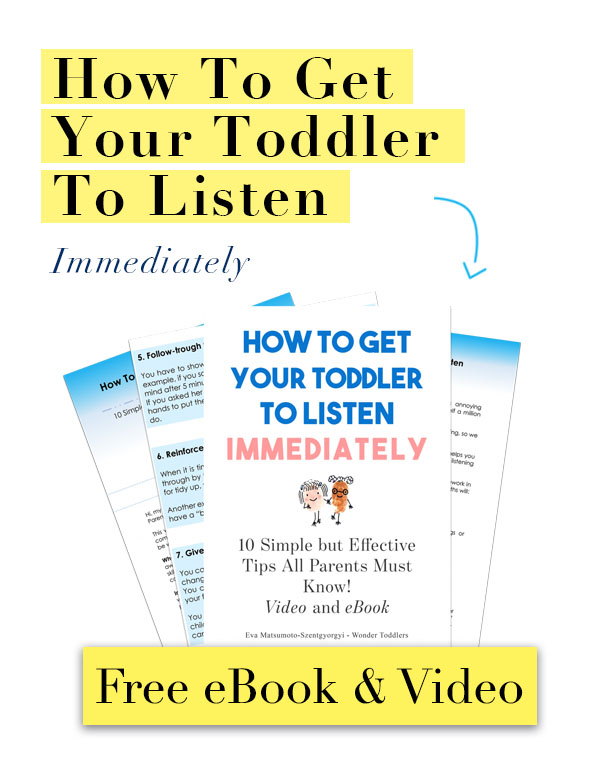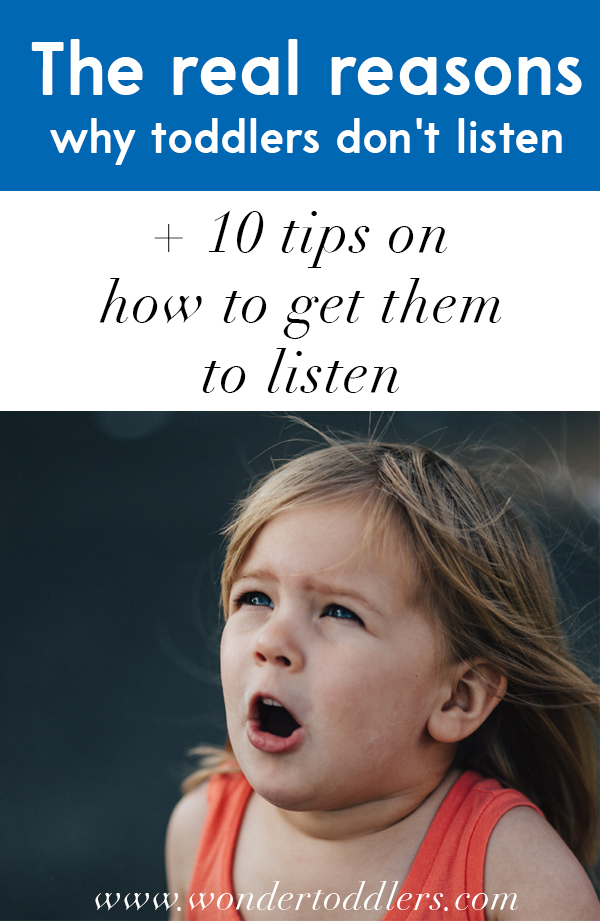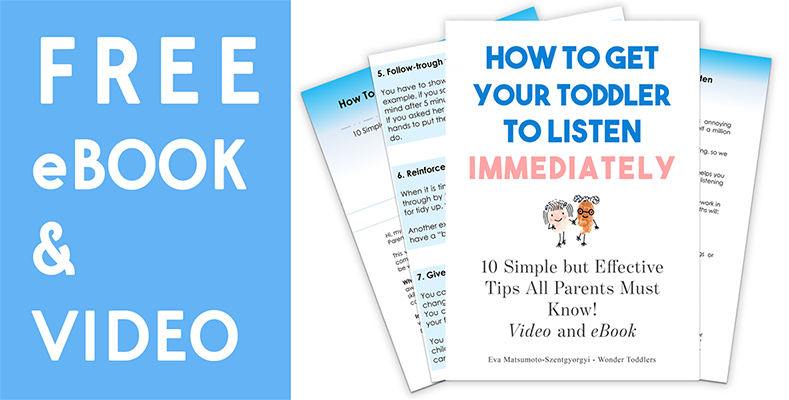3 Reasons Why Toddlers Don’t Listen
In this article, I am going to talk about some very real reasons why toddlers can’t listen like adults. If you ever asked these questions: ‘Why doesn’t my toddler listen to me? How can I get my child to listen?’ then please stay to read and you might find your answers you are looking for.
Hearing vs Listening
Sometimes, and I am not an exception, we love to think that if we say something once and it is heard then it will be done because hearing is listening, right? So why our children keep running if they heard us a million times? Let’s find out if there is a difference between hearing and listening:
What is hearing?
Hearing is the ability to perceive sound by detecting vibrations through the ear and this sound stimulus will be sent to the brain for reception. It is typically present from birth.
What is listening?
Listening is an active process, a skill that develops over time. It requires lots of practice for children to make sense of a sound and to recognise its importance. It also requires paying attention, focus – and this is one of the things that toddlers are not really good at (yet) – and I am going to talk about it later.
“Listening is one of the most important of all the skills that children need if they are to learn from their environment (the world around them).” Law & Elias, 1969
The 3 very real reasons why toddlers don’t listen
There are so many reasons why toddlers might not listen, but for now, I would like to share the ones that children simply cannot be blamed for. The 3 reasons below are mainly the ones that responsible for children not listening as much as we like them sometimes.
1. Brain development
Our brain starts to develop in utero (in the womb) after some weeks of conception [efn_note] 1 [/efn_note] and by the age of three, a big bulk of the brain has matured. However, some parts of the brain, that are connected to hearing and listening, are not fully developed just yet in our toddlers:
- The human auditory system
- Prefrontal cortex
The human auditory system is responsible for hearing, and it is not completely developed yet in young children – it matures at around the age of 15. [efn_note] 2 [/efn_note]
The prefrontal cortex, that sits at the front of the brain, goes under maturation up until the end of adolescence [efn_note] 3 [/efn_note] and it is responsible for (just to mention a few that are related to listening):
- Attention and concentration
- Working memory
- Decision making
- Emotional responses to situations
So we already learnt about two ‘obstacles’ that are in the way of having the ability to hear and listen like adults at a young age. Let’s see the others:
2. Short attention span
Listening and attention are very much related: you need to pay attention to something or somebody if you really want to listen.
“Listening goes hand in hand with attention (there’s a reason they’re joined in the foundation stage curriculum). To listen you have to bring your attention to the person speaking and focus on what they are saying, blocking out other distractions. Our brains learn to do this gradually, as we become more able to focus on what someone else is saying and ignore other distractions.” – Amanda Baxter, speech and language therapist.
Toddlers can focus and maintain attention from 3 to 15 mins average:
- 2 years have an attention span of 3-10 mins
- 3 years have an attention span of 4-15 mins
3. Language and life experience
Young children, in our case, toddlers do not have enough or the necessary language and life experience [efn_note] 4 [/efn_note], so that we cannot expect them to understand us or even hear us as older children or adults would do.
They are at the beginning of learning and understanding, so we need to give them time and ensure a loving and caring environment, where they can blossom. If you would like to be heard and understood by your toddler, I advise you to be straightforward, consistent and patient.
Can we get toddlers to listen?
We sure can : )
Just because their brain hasn’t fully developed yet and they don’t have enough language and life experience doesn’t mean that they can’t listen at all and it certainly doesn’t mean that they shouldn’t try to improve on it.
We can get them to listen if we help them develop and improve their listening skills and I can give you
Reference list:
1 Mayo Clinic: Pregnancy week by week [Online] Available at https://www.mayoclinic.org/healthy-lifestyle/pregnancy-week-by-week/in-depth/prenatal-care/art-20045302
2 The Hearing Review: Listening Is Where Hearing Meets Brain …in Children and Adults (2011) [Online] Available at http://www.hearingreview.com/2011/10/listening-is-where-hearing-meets-brain-in-children-and-adults-2/
3 Arain M, Haque M, Johal L, et al. Maturation of the adolescent brain. Neuropsychiatr Dis Treat. 2013;9:449–461. doi:10.2147/NDT.S39776 [Online] Available at https://www.ncbi.nlm.nih.gov/pmc/articles/PMC3621648/
4 The Hearing Review: Listening Is Where Hearing Meets Brain …in Children and Adults (2011) [Online] Available at http://www.hearingreview.com/2011/10/listening-is-where-hearing-meets-brain-in-children-and-adults-2/
Amanda Baxter (2016) Top tips for listening. Pacey. [Online] Available at https://www.pacey.org.uk/news-and-views/pacey-blog/2016/july-2016/top-tips-for-listening/


Feel free to share this article by pinning, tweeting or posting this image above : )
Join our Community on Social Media to discuss this and any other topic with fellow parents and teachers!
Facebook Twitter Instagram Pinterest YouTube
Share your opinion, help others with your experience and let’s form a good place together.


